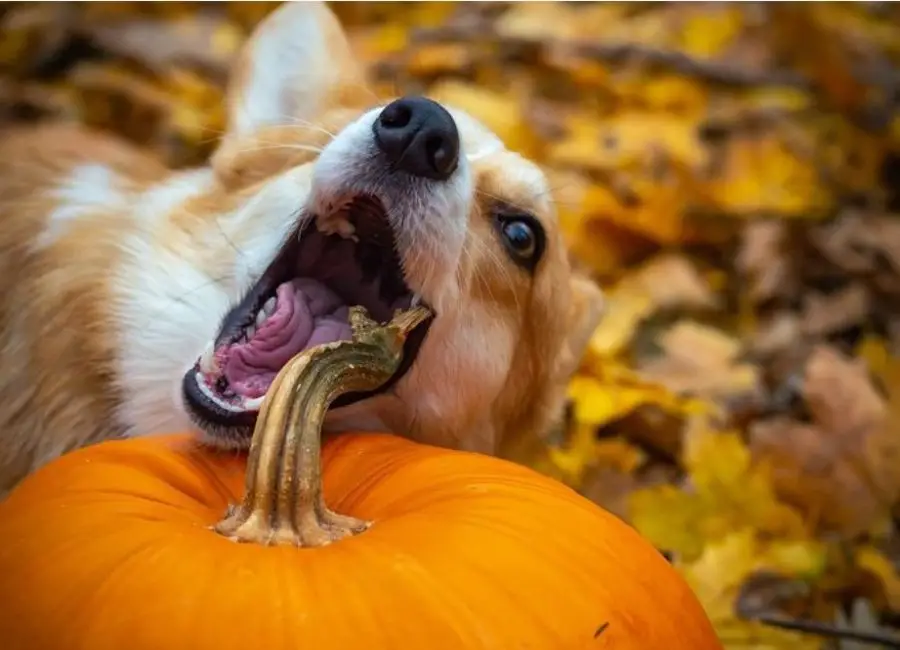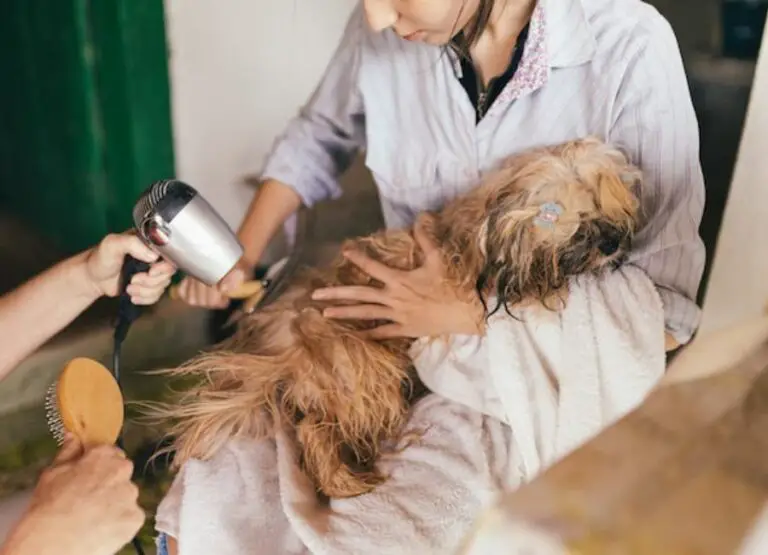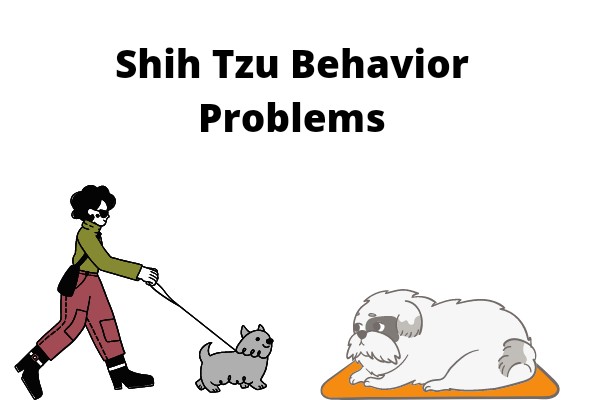9 Reasons Why Corgis Bite & Helpful Tips

Why corgis bite is a broad question that can be discussed from different angles because corgis are not known for biting.
Even though corgis are not known to bite that doesn’t mean they don’t bite, they do, but for some reasons or circumstances.
I will be discussing the most common reasons why corgis bite, mainly on their owner’s fault.
I will also outline some common ways to avoid or prevent bites.
Do corgis bite a lot?
Corgis are not known for biting during their adult stages, they are sometimes known to bite or nip when teething during their puppy stages.
Due to poor socialization, they could bite to defend themselves or nip out of excitement.
That corgis bite or nip when growing teeth doesn’t mean they bite a lot because they grow to pass their puppy stages.
However, since they are a herding breed of dog there is still a tendency to bite or nip as it applies to most herding dogs.
Reasons why corgis bite

Since corgis are not known to bite unnecessarily, let’s look at some common circumstances that lead to biting in corgis.
Here are some of the most common reasons why corgis bite:
1. Corgis can bite when startled
If startled, Corgis often bite, especially if they’ve been relaxed, napping, or resting.
This form of biting is not always serious but could still hurt if deep.
A scared corgi can bite if awakened while sleeping and may become disoriented and uncertain of its surroundings.
Older corgis are especially prone to this since they may have hearing or vision problems and become confused when awakened awake.
Solution
Never disturb your corgi that is sound asleep, and don’t let your kids get into their beds.
When you come home and find your corgi sleeping don’t startle him or her by touching some of her body parts.
You can slowly call him if you must wake him or her, else go about your activities as they will wake up on their own terms.
Your corgi learns that biting is undesirable behavior during socializing via your behaviors, instruction, or reprimand.
Therefore, if your corgi lacks adequate socialization, he may bite anything, including other animals, believing that it is appropriate behavior.
Since biting is known to be a corgi unwanted behavior issue, it is unacceptable in well-socialized corgis.
Corgi bites are a result of a lack of socialization and are related to self-defense and fear.
Solution
The best way to prevent or avoid circumstances that lead to biting in corgis is to properly socialize your corgi with people and pets.
Here are some common ways to properly socialize your corgi:
- Take your corgi to dog shows within your area.
- Good obedience training sessions.
- Enrollment in puppy classes.
- Visiting dog parks with your corgi.
- Inviting other dog owners over to visit you.
- Introduce your corgi to loud sounds.
- Visiting other well-trained dogs.
- Take your corgi for an evening walk.
3. Corgis bite during teething stages
Corgis can bite or nip at anything they perceive to be a part of the puppy stage while they are teething.
At this time, you should treat your puppy gently and provide lots of chew toys to keep them engaged.
You’ll simply have to wait it out because there isn’t much you can do to completely stop your corgi pups from biting and nipping.
Although the majority of dog owners do not consider teething periods to be a cause of corgi biting, it does not alter the reality that they occur.
You should start training your corgi not to bite while he is teething.
Solution
Be calm and patient with your corgi during the teething stages as it’s a function of time.
You can also get lots of chew toys for your corgi to help him know what to nip or bite.
You can use the teething stages to actually teach your corgi that biting is a bad behavior, don’t give your bare hand for corgis to bite as they may think it’s a normal thing.
Always offer them chew toys during teething stages.
4. Corgis can bite when ill or in pains
Although corgis are rarely aggressive, they may become extremely anxious, scared, and nasty when they are ill or hurt.
Even the most patient corgi can bite if they are injured or in pain because a sick corgi might turn hostile.
Be careful while lifting or moving your corgi if he is injured since he could bite if not handled properly.
Solution
Make an appointment with your veterinarian and a local positive reinforcement trainer if your corgi’s behavior suddenly changes.
If your corgi start making some funny sounds when you touch a certain part of his body call your vet.
5. Corgis can bite due to frustration
When corgis are frustrated or distressed, this can also result in biting behavior.
Corgis may bite out of rage or irritation if they are trapped in an uncomfortable or unpleasant situation.
If placed on a leash for too long a corgi may become frustrated if they cannot get what they want.
A corgi may turn and bite at anything or someone holding them back in a redirecting or redirected bite.
If your corgi hasn’t been socialized, this type of bite is more likely to occur.
Solution
Frustration can quickly become a problem for you and your corgi like unnecessary biting.
Do your best to avoid circumstances that put your corgi on frustration.
Leaving your corgi at home alone unattended can lead to frustration so avoid it.
6. Aggression due to traumatic experience
One of the causes of corgis being aggressive is traumatic experience, which can eventually result in unnecessary biting behaviors.
One of the most frequent ways you torture your corgi without realizing it is by starving him which can become a traumatic experience for him.
Another kind of abuse includes yelling at your corgi or slapping or throwing things at him can also lead to traumatic experience.
Your corgi will become angry and unbalanced due to all of this, which will lead to unnecessary biting.
Solution
Since traumatic experience is more common in dogs coming from the shelter home or street, you hardly have this form of biting.
If you adopted your corgi, and they grow more aggressive overtime, you have to see a dog behaviorist or vet.
7. Corgis can bite due to fear
One of the most common causes of a corgi bite is fear; if the dog feels threatened, he may bite.
Fear drives corgis to act out ineffectively by whining, barking, or biting aggressively.
A corgi typically bites in response to hostility, fear, or menace, as well as when danger is around.
Solution
Avoid exposing your corgi to anything that frightens him, or better yet, socialize him with fear.
8. Corgis can bite due to anxiety and stress
One of the main reasons of undesirable corgi behaviors like biting, whining, and nipping is this, which is exceedingly harmful.
When a corgi has separation anxiety, it becomes hostile toward everyone, even its owner, and may bite without justification.
The fury often lasts longer and is more powerful, and it frequently ends in biting.
Consult your veterinarian or get a second pet to keep your corgi company to prevent separation anxiety.
It’s crucial to eliminate any sources of tension since stress can make corgis furious and attack anyone nearby.
9. Corgis can bite defending themselves
If their owners have not properly trained them or their territory has been attacked, corgis may bite in an effort to defend themselves.
Most corgis, especially those that haven’t been properly socialized, believe that biting is the greatest form of self-defense.
It is your duty to provide a secure atmosphere for your corgi and to instill in them the notion that biting is never acceptable.
As soon as you can, begin socializing your corgi with people and other animals.
Common ways to control corgi biting
Here are some common techniques for deterring or teaching corgis not to bite:
1. Place your corgi on time out when they bite
Instead of punishing your dog when he bites you firmly, start punishing him whenever you feel his nails brush against your skin.
As soon as your dog’s claws brush up against you, let out a loud yelp.
Take a step back from him after that. Ignore him for 30 to 60 seconds.
To give your dog a chance to calm down and prevent biting, gently place them in their box.
Keep your composure so kids don’t learn to associate the box with punishment. Once the dog has calmed down, you may let it outside.
2. Teach your corgi to ignore distractions
Dogs are capable of aggression in specific situations.
When corgis see certain type of people or pets they often get aggressive.
You should educate your corgi to ignore people in order to prevent this.
Making it positive reinforcement is the most efficient method to do this.
Give your corgi a “prize” and put him in “time out” if he starts to act defensively.
The dog will only be required to stay still and be safe while you are giving him his treat.
You may educate your corgi to keep walking if you are walking by using prizes to keep him interested and distracted.
3. Obedience training sessions
Training your corgi is advantageous for his well-being and for his ability to interact with his surroundings.
Give your corgi at the very least some fundamental training, and keep up the training regimen throughout the dog’s life to help it retain the knowledge you’ve imparted.
Make the appropriate adjustments when your corgi attacks needlessly rather of hitting or yelling at him.
As long as your corgi is still a puppy, teething toys are the best approach to teach him or her not to bite.
You may teach your corgi that biting is unacceptable behavior and use positive reward to divert him from biting.
Here are other ways of preventing corgis from biting:
- Your border collie should be trained to accept hands placed near his mouth.
- Determine the root of biting and remove it.
- At any age, never let your corgi engage in pounce play.
- Give them extra chew toys so they won’t bite you.
- Teach your corgi to disregard any interruptions that can cause unneeded biting.
- Teach your corgi to stop and to leave something alone.
- Desensitize your corgi by showing him his phobias.
- Only encourage the actions you want your corgi to take.
- Avoid taking any activities that encourage hostility.






![Beagle Lifespan [9 Factors to Consider] Beagle Lifespan](https://petcreeks.com/wp-content/uploads/2023/05/Beagle-Lifespan-768x555.jpg)